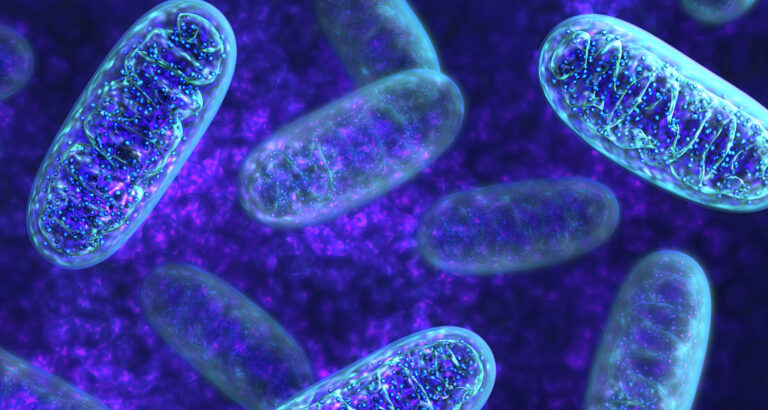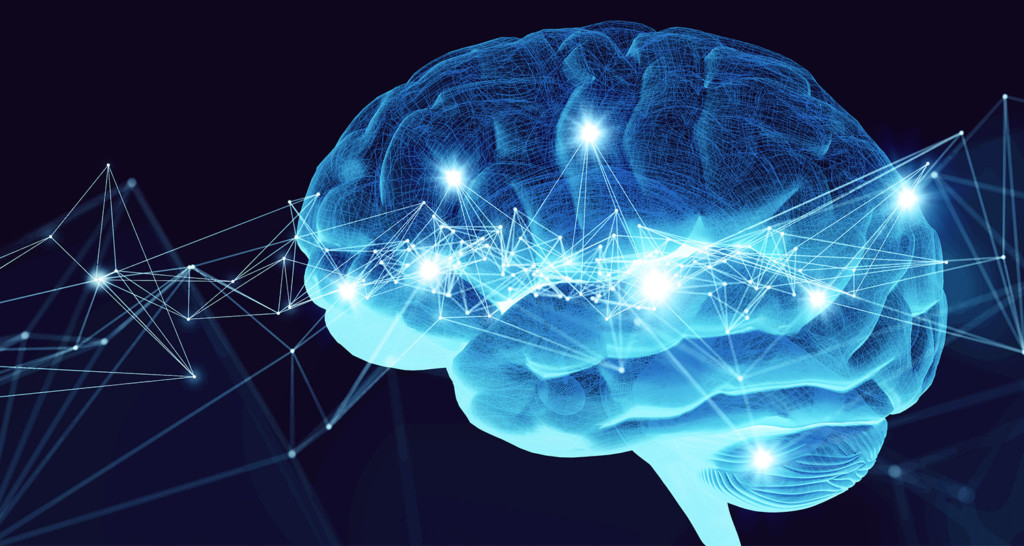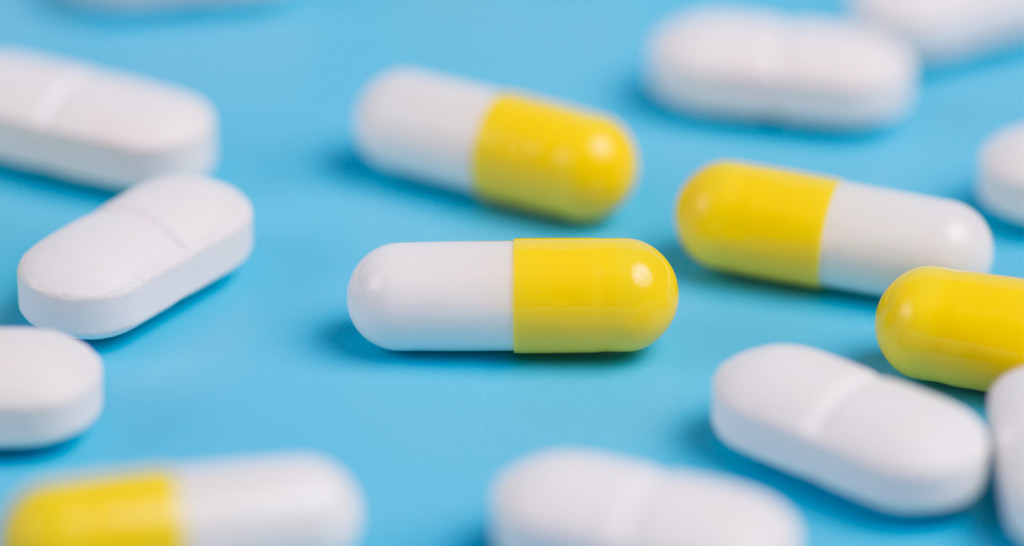
[tldr]
- New research suggests that your mitochondria (the power plants of your cells) play a big role in depression. Strengthening your mitochondria could be a powerful way to snap out of depression and become less susceptible to it in the future.
- Depressed people have low levels of acetyl-L-carnitine (ALCAR), a compound that controls both mitochondrial function and serotonin production. Low ALCAR can sap your energy and throw your brain chemicals out of balance.
- Supplementing with ALCAR is as effective as taking Prozac in some people; it reverses depressive symptoms and turns your mitochondria back on, ramping up energy production. And unlike antidepressants, ALCAR has no major side effects.
- Antidepressants could also be sabotaging your mitochondria. Prozac and SSRIs like Zoloft deplete ATP (energy) and cause enzymes to leak out of your mitochondria, making them much less effective at fueling your cells. Taking antidepressants long-term can even cause mitochondrial death.
- If you’re depressed (especially if you’re on antidepressants), use the tips in this article to strengthen your mitochondria and protect them from damage.
[/tldr]
If you struggle with depression, your mitochondria — the power plants of your cells — could be partly to blame. Studies link depression to mitochondrial dysfunction, particularly when it comes to symptoms like physical inactivity and exhaustion[1]. There’s also new research showing that antidepressants may damage your mitochondria, making it more difficult to shake depression long-term.
In a recent Bulletproof Radio podcast episode [iTunes], neuroscientist Martin Picard talked about this missing piece in understanding depression.
“There’s good research coming out linking mitochondrial metabolism and depression,” Picard says.
The good news is that there’s a lot you can do to power up your mitochondria and elevate your brain function and mood. This article will talk about mitochondria and depression, and how you can hack your mitochondria to make more energy and get out of depression.
Download this 30-day guide to supercharge your brain and body with advice, recipes, and meal plans
Acetyl-L-carnitine, mitochondria, and depression
One of the big markers of depression (and mitochondrial dysfunction) is a decrease in a compound called acetyl-L-carnitine (ALCAR).
If you’ve been depressed and felt like you couldn’t physically get out of bed, low ALCAR could be to blame. It’s a vicious cycle: you feel depressed, but you don’t have the physical energy to get out of bed and do something about it. You end up in a negative loop, getting more and more depressed with less and less energy. Low ALCAR could be the neurological reason that loop happens. Depressed people have lower levels of ALCAR, and the further their ALCAR levels dip, the more depressed they feel[ref url=”https://www.pnas.org/content/115/34/8627.short”].
That makes sense, because ALCAR does two major things:
- Serotonin production. ALCAR helps your brain synthesize serotonin, the brain chemical that controls your mood[ref url=”https://www.ncbi.nlm.nih.gov/pmc/articles/PMC4949601/”]. Low serotonin leads to depression — in fact, most major antidepressants work by boosting your serotonin.
- Mitochondrial function. Your mitochondria need ALCAR to make energy. Low ALCAR levels (from depression, for example) cause mitochondrial dysfunction, and as you struggle to create energy for your cells, chronic fatigue and lack of motivation can set in[ref url=”https://www.ncbi.nlm.nih.gov/pmc/articles/PMC5964020/”].
Take ALCAR supplements
Here’s the good news: you can supplement with ALCAR easily, and ALCAR supplements have a powerful effect on both mood and mitochondria.
- ALCAR was as effective as Prozac in reversing depression in the elderly[ref url=”https://www.ncbi.nlm.nih.gov/pubmed/23428336″]. The ALCAR group showed none of the side effects that happen with Prozac (drowsiness, erectile dysfunction, decreased sex drive, etc.).
- A 2016 study found that giving rodents ALCAR triggered “rapid antidepressant action” in a model of treatment-resistant depression[ref url=”https://www.pnas.org/content/113/28/7906″].
- ALCAR supplements increased serotonin production in rodents, much like a prescription antidepressant does[ref url=”https://www.ncbi.nlm.nih.gov/pubmed/22549035″]. The rodents also showed a marked increase in brain energy production .
- ALCAR reversed mitochondrial aging in old rats, and returned energy production to that of a young rat[ref url=”https://www.ncbi.nlm.nih.gov/pmc/articles/PMC21378/”].
- Taking ALCAR reversed mitochondrial dysfunction following spinal cord injury[ref url=”https://www.ncbi.nlm.nih.gov/pmc/articles/PMC2897952/”].
- ALCAR also restores mitochondrial function after toxic aluminum exposure[ref url=”https://www.ncbi.nlm.nih.gov/pmc/articles/PMC4715336/”].
If you’re depressed and have low, ALCAR can help you reverse your symptoms and get your brain back into balance. This complete guide to acetyl-L-carnitine shares the best sources of ALCAR, as well as the right dosages.
Antidepressants may damage your mitochondria
A lot of antidepressants cause lethargy, sleepiness, trouble focusing, chronic fatigue, and other energy-related side effects. Emerging research suggests that it could be because antidepressants sabotage your mitochondria, especially when you take them long-term.
Prozac, for example, causes apoptosis (self-destruction) in brain mitochondria, but only at higher doses[ref url=”https://www.ncbi.nlm.nih.gov/pubmed/27392437/”]. This is frustrating, because a lot of people who take Prozac have to increase their dose after a few months, otherwise the Prozac stops working. The increased dose could start damaging your mitochondria and cause a major dip in energy — but at that point, you’re reliant on Prozac, and it’s notoriously difficult to get off it.
Zoloft can also cause mitochondrial dysfunction. It depletes ATP (energy) and causes enzymes to leak out of your mitochondria, crippling their ability to fuel your cells[ref url=”https://www.ncbi.nlm.nih.gov/pmc/articles/PMC5736306/”].
Antidepressants in general can interfere with mitochondrial enzymes that help mitochondria burn fat and glucose for fuel, which decreases energy production and eventually leads to mitochondrial death[ref url=”https://www.ncbi.nlm.nih.gov/pubmed/21120605″][ref url=”https://www.ncbi.nlm.nih.gov/pubmed/10544958″].
If you’re on antidepressants and they help you, make it a point to give your mitochondria extra support and protect them from damage. This guide to boosting mitochondria can help, and for the ultimate guide to supercharging your mitochondria and creating more energy than you thought possible, pick up a copy of “Head Strong”. It has dozens of hacks that upgrade your mitochondria, from cold exposure and oxygen deprivation to obscure but powerful supplements. You may even find that you feel good enough that you can get off your antidepressants — although if you do, be certain you get a doctor’s help. Getting off antidepressants is a gradual process that requires precision and the help of a professional. Do not try it alone.
Keep your mitochondria strong; they could help you get out of depression and become less susceptible to it in the future.
Read next: 5 Anti-Aging Secrets for Your Mitochondria













